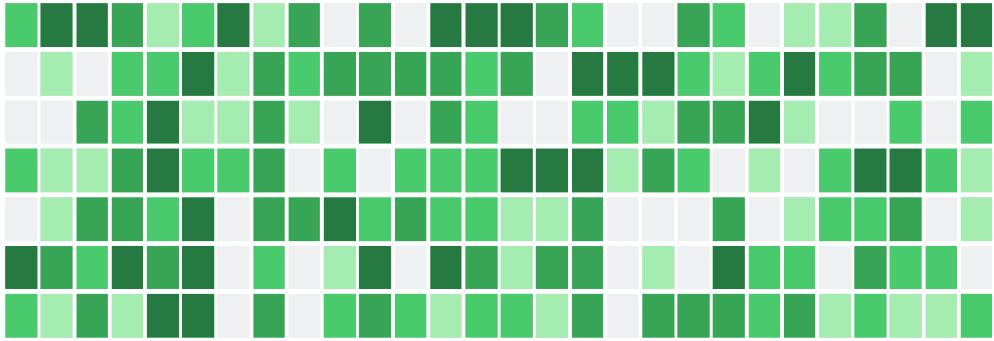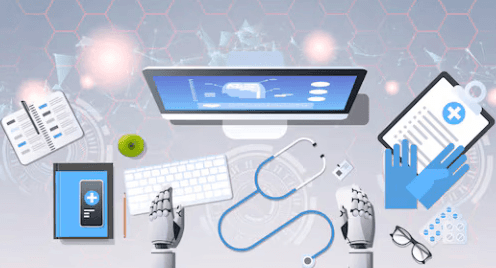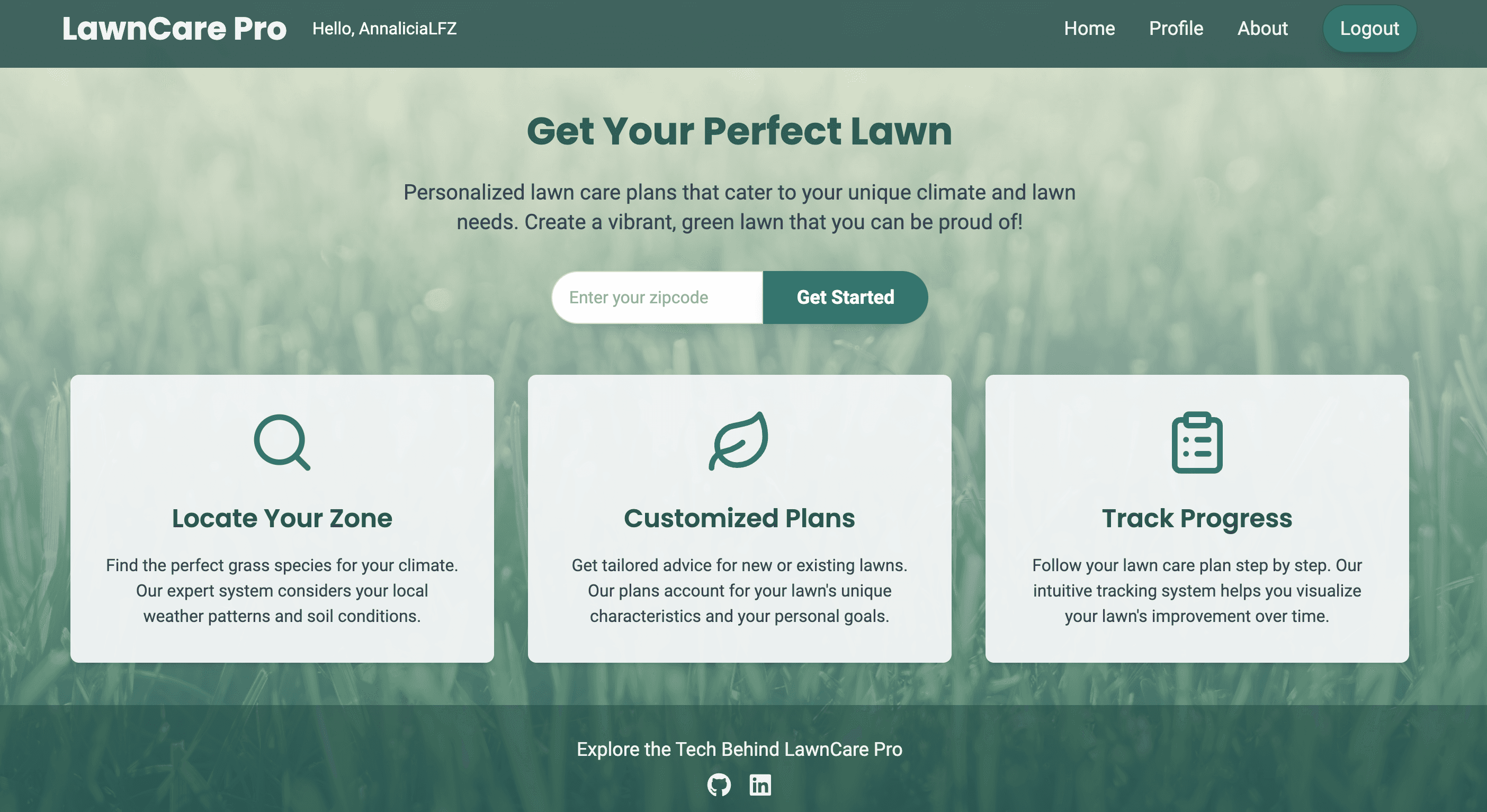How To Become A Software Engineer In As Little As 18 Weeks
From gourmet food truck owners to multibillion-dollar corporations, virtually every business relies on technology to handle its daily operations. From accepting payments to processing vast amounts of data to analyze investment opportunities in the stock market, we all need computers and the programs that drive them.
In the past, creating a new program involved writing custom code from scratch. Today, learning how to become a software engineer requires knowing many different programming languages. Plus, there are countless software architectures that can be used to facilitate nearly every possible outcome.
Now, more than ever, the software industry needs more engineers than universities can produce. Thankfully, coding bootcamps like LearningFuze can be a quicker way to become a software engineer, often taking as little as three months to complete a program.
What Do Software Engineers Do?
Put simply—software engineers are a branch of computer scientists that utilize their skills and wealth of knowledge to design, create, test, and maintain software applications that can be applied for countless uses.
Using a hefty variety of programming languages, software engineering languages, and programming methodologies, they work to provide high-quality software solutions for whomever their end users may be.
Steps to Become a Software Engineer
There is more than one way to learn how to become a software engineer. Though there are many paths to becoming a developer, we’ve simplified the three most important steps to becoming a software engineer so to start your career quickly:
Step 1: Get an Education
Getting a proper education is an important first step when learning how to become a software engineer. There are a variety of ways to do this:
Software Engineering Bootcamp
One of the fastest and most cost-effective ways developers learn how to become a software engineer is by attending a software engineering bootcamp at LearningFuze. Learning how to become a software engineer typically requires a significant investment, however a bootcamp is faster than most other approaches and much less expensive than attending a university.
The cost of a software engineering bootcamp LearningFuze is similar to one year of in-state tuition at a public university. As such, bootcamps are a more budget-friendly option for people who don’t want to carry around student debt for years after graduation.
Also, our entire software engineering bootcamp can be completed in the time it takes to complete one quarter at a university, which means you could be career-ready in one-eighth of the time it would take to get your bachelor’s in software engineering.
When you attend a software engineering bootcamp at LearningFuze, you will receive an in-depth education on all of the fundamental skills, tools, and techniques you will use in your daily role as a software engineer. As such, it’s important to note that this approach isn’t a fast, cheap, and easy way how to become a software engineer.
With so much information condensed into such a short stretch of time, you should expect the material to be challenging and informative. However, just because our software engineering bootcamp encompasses a large amount of information in a short period of time, that doesn’t mean that the learning process at LearningFuze will be overwhelming.
Our software engineering bootcamp is designed to be intuitive and beginner-friendly while emphasizing hands-on learning. You’ll begin by learning the fundamental concepts of how to become a software engineer. Then, you will start to put those skills into practice right away. This will help you gain a more contextual and practical understanding of what you’re learning.
In addition to being carefully designed and planned, our courses are taught by highly-accomplished instructors. One thing we constantly hear from our students is that they love working with their instructors because of the individual attention and support they receive.
If you are interested in finding out how to become a software engineer through LearningFuze, read what real students have said about us to get a clearer idea of what your software-engineering future could hold.
Attending a University
When you attend a university to learn how to become a software engineer, you will receive a comprehensive education on software engineering. And it certainly doesn’t hurt to have a degree on your resume.
Learning how to become a software engineer by getting a traditional four-year degree has drawbacks. For example, to obtain a degree in software engineering, you will likely need to participate in additional elective courses that might not have anything to do with your major.
The number of electives you’ll have to take will depend on the institution you choose to attend, but this can still add a significant amount to your overall tuition over a few years.
Furthermore, the total cost of a bachelor’s degree for any field of study is significantly higher than what it used to be in the United States. When it comes to public universities, the average yearly cost is around $11k for in-state tuition.
On the other hand, private universities have an average yearly price tag of nearly four times what it costs to attend a state university. So by the time you graduate from your bachelor’s program, you will most likely have paid (or become indebted) something to the tune of $45,000 to $150,000.
In addition to its steep cost, attending a university is one of the more time-consuming ways of how to become a software engineer. Most bachelor’s programs in the United States are designed to be completed in four years, but it can take significantly longer to complete the same program when studying part-time.
If you are just out of high school and are considering software engineering for your career, this will be more doable. However, it tends to be harder for people who have already been working for a while. These individuals often have other responsibilities that conflict with their class schedule.
Attending a university is usually better for people wanting to pursue higher education right out of high school. Also, you will want to remember that getting a bachelor’s degree in software engineering will most likely be the most expensive route, no matter which university you choose to attend.
That said, a university software engineering degree will give you the most in-depth education. So for those who are willing to take on the financial and time commitment for getting their bachelor’s degree, a university education might be worth it.
Self-Study
Arguably one of the most challenging paths of how to become a software engineer. Self-studies present several hurdles that those striving to land a programming career will have to overcome. One of those challenges is the difficulty of accountability since you have to motivate yourself to set time aside to learn and practice each day. In contrast, at the LearningFuze campus, you’re surrounded by an in-person community of teachers and peers who you attend classes with.
When learning any new skill on your own, it takes time to get oriented and find the right place to start. One way you might mitigate this issue is to get some books that will help you make your way through the material in a more organized format, but this doesn’t address all of the obstacles that come with learning on your own.

More often than not, students need to see the concepts they are learning put into practice, especially when it comes to complicated subject matter like software engineering. In addition to seeing examples, students will need to have their questions answered by someone with enough experience to put the answer into perspective and provide a detailed explanation.
Self-taught individuals might turn to online forums and message boards to get answers to their questions. However, these sources won’t always provide reliable information. And this may result in basing further concepts on incorrect assumptions.
Overall, self-studies for how to become a software engineer will take an incredible amount of commitment and perseverance. When students encounter complex problems or lack motivation, they often need other students and instructors to guide and encourage them through the tough spots.
On-the-Job Training
On-the-job opportunities are few and far between in software engineering. There are really only a fortunate few who can take advantage of how to become a software engineer this way.
The reality of the software engineering world is that it is highly competitive, despite being highly in demand. When companies train people on how to become a software engineer from the ground up, they are making a significant investment in the individuals they choose for these kinds of programs.
Generally speaking, the best way to find this kind of opportunity is to be promoted from within a company that has a large software engineering department. This might be possible for some, but companies will usually want to see that an individual is committed to their position and that they have a propensity for learning these kinds of skills before promoting them to such a demanding role.
What this means is that you will most likely need to start in a position that is related to software engineering and work your way up. How long this will take depends on the individual and the company they are working for, but you can expect to spend at least a few years with a company before graduating to the role you are aiming for.
Step 2: Choose Your Software Engineering Specialization
By the time you’ve completed your precursory software engineering education, you’ll likely have already chosen a specialization or at least narrowed down your options to a select few that you’d enjoy most. Thankfully, there is an abundance of career paths for software engineers, including:
Front-end engineers— Front-end software engineers focus on developing a front-facing user interface.
Back-end engineers — Back-end software engineers focus on the technical design and functionality of core systems of a piece of software.
Full stack engineers— Full stack engineers take on both front-end and back-end responsibilities.
Data engineers — Data engineers handle almost anything to do with data, from mining to warehousing and management.
Cloud architect — Cloud architects and engineers focus on software engineering that directly relates to cloud-based IT infrastructures.
And many more — From security software engineering to quality assurance software engineering, you’ll find no shortage of specializations.
There might be more than one that you’re interested in pursuing. Make sure to keep a list of favorite to least favorite. This will help you prepare and stay organized while job hunting.
Step 3: Start Your Career and Keep Learning
Once you’ve got the know-how and the career focus, it’s time to put your hard work into practice by finding your first software engineering job. However, the most successful software engineers continue to learn and grow post-education by learning new languages, methodologies, tools, softwares, and soft skills.
Software Engineering Languages
There are many skills that you will need how to become a software engineer, but don’t let this list overwhelm you. No one can grasp all of these skills overnight. Ideally, you should have a working knowledge of all of these before starting out on your job search. And once you are working in the field of software engineering, you can continue to hone and perfect your skills.
Depending on your niche, some programming languages might be more important than others for your daily work. However, there are a handful that will be essential for many of your daily tasks.
Java – Java is a multipurpose programming language that is frequently used for constructing backend systems, native applications, and Android mobile apps. Java offers robust and versatile programming capabilities, and it is known for its large standard library and built-in security features. These make it a perfect choice for server-side applications.
JavaScript – While Java is most often used for backend development, JavaScript is generally used for front-end web development. JavaScript allows software engineers to create object-oriented and dynamic user interfaces, and it is considered to be the most important web programming language.
Python – Python is another multipurpose programming language that is a favorite among developers. There are many different Python frameworks and libraries used across a wide variety of deployments. These can include graphical user interfaces, game development, AI and machine learning, and web development.
C++ – Known for its high-speeding processing capabilities, C++ is widely used in operating systems, network protocols, and other performance-critical applications. C++ is often one of the first programming languages that students will learn for how to become a software engineer.
Programming Methodologies
As a software engineer, you will rely on several different methods for developing and improving software. Here are a few of the most common programming methodologies you will learn as you become a software engineer.
Waterfall Model
The waterfall model is one of the oldest methodologies for software development, and it is known for its rigid and linear approach. In the waterfall method, you will follow a strictly sequential order in which each phase of development is completed before moving on to the next.
The typical order of operations for the waterfall model is as follows:
Gathering requirements
Designing the system
Implementing the software
Testing the entire system
Deploying the program
Maintaining the model
There are several benefits to using this methodology for software development, such as its predictability and sequential flow of deliverables. Also, because of its rigid structure, planning and executing the waterfall model is straightforward and reliable, which often makes the process more budget-friendly than other software development methodologies. Another benefit of the waterfall method is that its sequential approach also allows software developers to keep their projects on schedule.
In the waterfall model, each phase’s output becomes the input for the next phase, which means that every stage can be completed discreetly from the rest. However, this can present some challenges when it comes to the testing phase of the waterfall model. If there is an issue within the program that requires a large overhaul of the entire system, it is much more difficult to make adjustments in the code without disassembling and modifying every segment of this software model.
Agile Methodology
Unlike the waterfall model, the agile approach for software development focuses on flexibility and collaboration. Agile software development projects are divided into phases called iterations, and stakeholders are usually closely involved throughout the development process to ensure that the final product meets their expectations.
An agile approach recognizes the need for changing priorities and requirements, which is why each iteration within the agile project is planned separately at the beginning of every phase. Also, testing occurs frequently throughout the development of every iteration, rather than waiting to test the product as a whole when the project is completed.
There are several frameworks that are commonly used in agile development, and each has its own purposes and characteristics.
Scrum – Scrum development places a heavy emphasis on teamwork and iterative development. Projects that employ the Scrum framework are divided into compact iterations called sprints, and each sprint is completed by a cross-functional team to produce an operational system in discrete increments.
Kanban – The Kanban approach to agile software development focuses on creating an efficient workflow through the use of a visual representation of the entire project. Each task is pictured as a card on the Kanban board, and as individual tasks are completed, the corresponding cards are moved across the board to represent their stage of development. When using a Kanban board to streamline the software development workflow, tasks are often broken down into the smallest components possible, which greatly simplifies the production process by reducing “in-progress” work.
Extreme Programming (XP) – For projects that require a great deal of collaboration and flexibility, an XP agile development approach is often employed because it is centered around teamwork and continuous improvement. In extreme programming, software developers often work together in pairs to streamline the development process. While one writes code, the other observes and provides immediate feedback to improve the software as it is being written.
Lean Development
This approach to software development is based on principles that were borrowed from manufacturing processes established within the automotive industry. The lean development software engineering approach strives to eliminate redundancy while focusing on delivering value.
Kaizen, one of the core principles of lean development, places the utmost importance on continuously improving the production process. Teams are encouraged to take time to reflect on their practices in order to eliminate waste and find areas that need improvement.
There are many other approaches to software engineering, and each one is designed around different principles and purposes. And it’s important to keep in mind that most of these approaches place a strong emphasis on teamwork and collaboration with customers.
Programming Tools
As a software engineer, you will utilize a large number of tools and applications to enhance your coding abilities. Keep in mind when reading this list that there are many different versions for most of these tools.
Integrated Development Environment
An integrated development environment (also known as IDE for short) is a comprehensive environment where software engineers can write and edit code for their software. These coding environments typically include exhaustive sets of tools and features that assist developers in writing, testing, and debugging their code. Having these tools integrated into the development environment allows software engineers to work more efficiently and produce higher-quality software products.
In an IDE, a software engineer can execute code within the development environment, which greatly reduces the amount of time it takes to test software. IDEs also include debugging tools that can help software engineers examine their code in more detail by controlling the sequence in which the code is executed.
By utilizing commands such as “step into,” “step over,” and “step out,” programmers can run their code by executing individual function calls. This allows them to gain a better understanding of how pieces of code are behaving within the overall structure of the software.
Version Control Systems
A VCS is a tool that assists in collaboration and tracking the software development progress. One of the most popular choices for version control systems is Git, and it is often used with platforms like GitHub and GitLab.
These platforms help software engineers keep track of changes made to their codebase by keeping a detailed record of every edit that has been made. Additionally, these platforms assist in collaboration among team members, especially when working with large bodies of code.
Teams can use version control systems to divide their code into smaller segments so that team members can work on them independently. This feature makes it possible to edit portions of code without changing the entire codebase. Once each segment has been adjusted and tested, it can be reintegrated with the rest of the code for further testing.
Documentation Tools
Documentation is a crucial part of software development because it ensures effective communication among team members and collaborators. Documentation can take the form of flow charts, text, comments on specific portions of code, and more. By thoroughly documenting every step of the software development process, software engineers can enhance the quality of the software and facilitate a successful implementation of the program.
There are a multitude of different software documentation platforms offering a wide variety of features and tools, and the documentation tool you use will depend on the type of software you are working on. For example, when developing APIs, software engineers will often use platforms such as OpenAPI and Swagger to create interactive documentation that can easily be navigated.
Software Engineer Soft Skills
Although many people tend to believe that software engineers sit in dark rooms going over lines of code while listening to techno, this isn’t always the case. Software engineers need excellent communication and people skills to be effective in their roles.
Whether you are writing code, testing iterations of software, or managing a team of software engineers, you can expect to be working in a diverse and collaborative environment most of the time. As such, you will need to have a strong set of soft skills for both interpersonal relationships and self-management throughout your career as how to become a software engineer.
Communication
This is one soft skill you will rely on heavily for how to become a software engineer. Being able to effectively convey and comprehend complex issues that may arise throughout developing a piece of software will greatly increase your chances of success in the long run.
Additionally, communication is a key aspect of working as part of a team, and it can play a big part in the way others perceive you in professional relationships.
Collaboration
Another important aspect of working in a team is the ability to collaborate on a project with others, whether it’s with team members or customers. Collaborating involves listening to others, sharing your ideas, and contributing equal efforts to achieve the group’s goals.
Without collaboration, many of the incredible ideas and concepts that we take for granted every day would never have come to be. Remember the age-old axiom: two heads are better than one.
Problem Solving
Having the ability to creatively solve problems is an essential soft skill for how to become a software engineer. When developing software, you will often need to diagnose issues that affect the performance and efficiency of the programs you are creating.
This process tends to be very meticulous, and it can often be extremely time-consuming. At times, you will need to go through code line-by-line to identify where the problem is happening, and it can be frustrating when the issue is less than apparent. When this happens, take your time, jot down some notes, and utilize whatever resources and tools you have available.
Another critical aspect of problem-solving is settling disputes among team members. When people have conflicting ideas and methodologies, it can often lead to delays in the software production process. If possible, try to find some middle ground where everyone is happy with the solution. However, if you can’t find a happy medium for the issue at hand, remember to stay calm. Sometimes it’s best to let the other person have their way, especially when working with people who are particularly difficult.
You may even find out that you were wrong in these kinds of situations. Gracefully handling difficult circumstances makes it much easier to admit that you were mistaken and move on with the task at hand.
Critical Thinking
Software engineers can practice their critical thinking skills by questioning their assumptions and testing their ideas. It is important to develop this skill to gain a better understanding of why things work the way they do.
Critical thinking is an invaluable soft skill that will help you develop your hard skills in a much more meaningful way, while also helping you make more informed decisions in the future. So take the time to analyze your work and ask questions.
Cultivating critical thinking skills helps you understand how and why things work the way they do. Grasping the why along with the how will result in gaining a more contextual understanding of concepts as a whole, ultimately allowing you to build on your knowledge base more independently and holistically.
Professionalism
If you wish to advance your career in how to become a software engineer, professionalism will make a huge difference in your ability to grow within your role and move up in your company’s management structure.
There are several facets of maintaining a professional demeanor, and they extend to nearly everything you do in a work environment. These can include maintaining a professional appearance, greeting others in the morning and throughout the day, using work-appropriate language at all times, keeping a tidy workspace, and approaching everything you do with the same level of decorum you would use when talking to a customer.
There are also a few things you should try to steer clear of to make sure others see you as a professional. These can include things such as participating in office gossip, complaining, avoiding responsibility, and using language that could be perceived as offensive or disrespectful.
Start Your Software Engineering Career with LearningFuze
If you want to learn how to become a software engineer and are looking for the right guidance to help you achieve your goals, LearningFuze is here to lead the way. LearningFuze has been preparing students for successful careers in tech since 2014, and we go above and beyond to make sure our students find jobs they love.
When you learn how to become a software engineer with LearningFuze, you can take advantage of our comprehensive career services to get connected with our extensive network of tech employers around Southern California.
94% of LearningFuze students who fully participate in our career services find jobs in the field of their choice within six months of completing our program. Employers love hiring our students because we focus on teaching them real-world skills through hands-on training to prepare them for long-term careers.
Additionally, we provide comprehensive career services that include practice interviews, resume assistance, and access to a huge network of employers that regularly hire our graduates. And when you complete one of our courses at LearningFuze, you’ll have access to these services for life.
So if you’re looking for an answer to how to become a software engineer, the solution is LearningFuze. When you attend one of our software engineering bootcamps, you’ll be ready to start your career for a fraction of the cost of a university and in less time than it would take to complete one semester of traditional education.
Additional Resources
You might like these

December 5, 2024
Here’s why those little green squares on GitHub matter, how they can impact your growth as a programmer, and how LearningFuze can help you get them.

December 11, 2024
Essential LinkedIn tips for junior developers: Boost your profile, leverage endorsements, and network effectively for career success in tech!

March 6, 2024
Discover your roadmap on how to become a web developer. Understand the fundamentals like HTML, CSS, and JavaScript as your gateway to a flexible and lucrative career.






